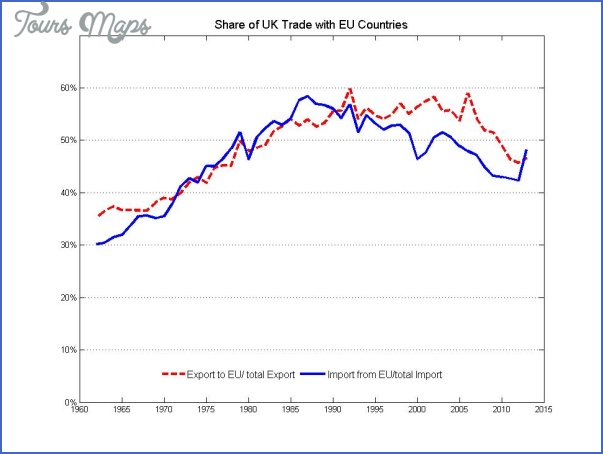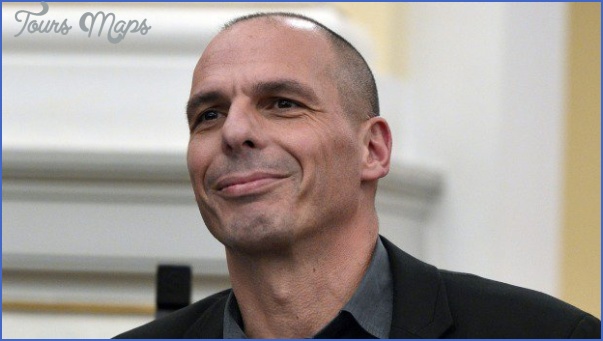Should Britain Stay in the EU?
nevertheless continues to be Europe’s most awkward partner, cherry-picking policies of which it approves and fiercely negotiating opt-outs of
those of which it doesn’t most, famously, the common travel area and the Euro. Given its reluctance to play like a true European, some even speculate that Britain might be better suited to membership of NAFTA. An all-or-nothing choice between the rapacious capitalism of the North Americans and the mellower mix of mandated job stability, long vacations, and comprehensive social services enjoyed by most European continentals is, however, not a straight-forward one for Britain to make.
Ever since Jean Monnet and Robert Schuman dreamed up the European Coal and Steel Community the forerunner of today’s European Union back in 1950, the UK has suffered from a prolonged case of attractionrepulsion syndrome towards European integration. Britain only joined the then-European Community in 1973 (which became the EU in 1993), having had its application vetoed twice in the 1960s by de Gaulle’s France, thus having been kept out of (or, some say, having missed out on) the formative years of European integration. While having been unable to offer a yea or nay on fundamental, early efforts at creating the common market may explain Britain’s continuing ambivalence (and intermittent obstructiveness) toward the EU, its oft-vaunted 1000 years of independence may go further in illuminating its ongoing love-affair with its sovereignty.
After World War II, Britain’s political and economic attachments were felt to lie elsewhere with its then-empire and within the emerging Commonwealth, as well as in its special relationship with the US. Indeed, the fact that Britain arrogantly ignored the developments on the European continent perhaps justified the EC’s spiteful rejection of Britain’s early attempts at courtship. When Britain finally joined, the Thatcher government almost immediately started to cause trouble, calling into question Britain’s significant contribution to the EC’s budget and specifically the cherished Common Agricultural Policy (a gargantuan agglomeration of subsidies to Europe’s fanners, most of which did not apply to a country like the UK whose agricultural economy is based largely on, well…sheep). Thatcher famously asked for Britain’s money back before demanding a massive financial overhaul of Europe, largely provoking the black days when politicians and academics on both sides of the Atlantic questioned whether European integration would ever be attained.
By 1988, Britain had experienced the largest reorientation of its trade toward the EU of all member states a remarkable demonstration of just how much Britain needed the EU, if it did not really love the idea of it. Britain (with Denmark)
Should Britain stay in the EU? Although membership is technically politically reversible, it may not be so economically. Extracting itself from the EU’s treaties and legislation adopted to date, as well as from the customs-free European web of trade, would be a Herculean task for Britain. While Britain’s pensioners and punters on the street (25% of whom, in a recent poll, didn’t even know that Britain was a member of the EU) might proudly rejoice at such a reclamation of self-determination, the City of London’s financiers and businessfolk would likely revolt at the idea. The UK’s current Labour government has, further, been the most Europhilic in recent times, and is contemplating a referendum on joining the Euro in the year to come. While the advantages of a single currency become evident to Britons as soon as they head out for their next holiday to Spain, France, or Greece, their deep attachment to the Pound Sterling as the last plank of Britishness in a sea of eroding sovereignty still runs high. Continuing to opt out of the Euro, as well as other unwearable policy areas, will keep Britain semi-detached and out of Europe’s inner core for some time to come, as well as continue to position the nation as the Euro-Atlantic area’s idiosyncratic middle ground. Thus, the question of Britain’s membership in the EU may be less one of should I stay or should I go?, but rather how long its partners in the ever-closer Union will continue to tolerate Britain’s consternating fickleness.
Jeremy Faro wrote for Let’s Go: Britain & Ireland 1995. He worked in London as a Senior Consultant for Interbrand, and is now a Master’s student in European Studies at the University of Cambridge.
Should Britain Stay in the EU? Photo Gallery
Maybe You Like Them Too
- Explore Néa Apollonía Greece with this Detailed Map
- Explore the Center of the United States with This Interactive Map
- Explore the Beautiful Town of Saint-Alban, France with This Map
- Explore the Beautiful City of Southport, Australia with This Map
- Explore Sasbach, Germany with our Interactive Map








